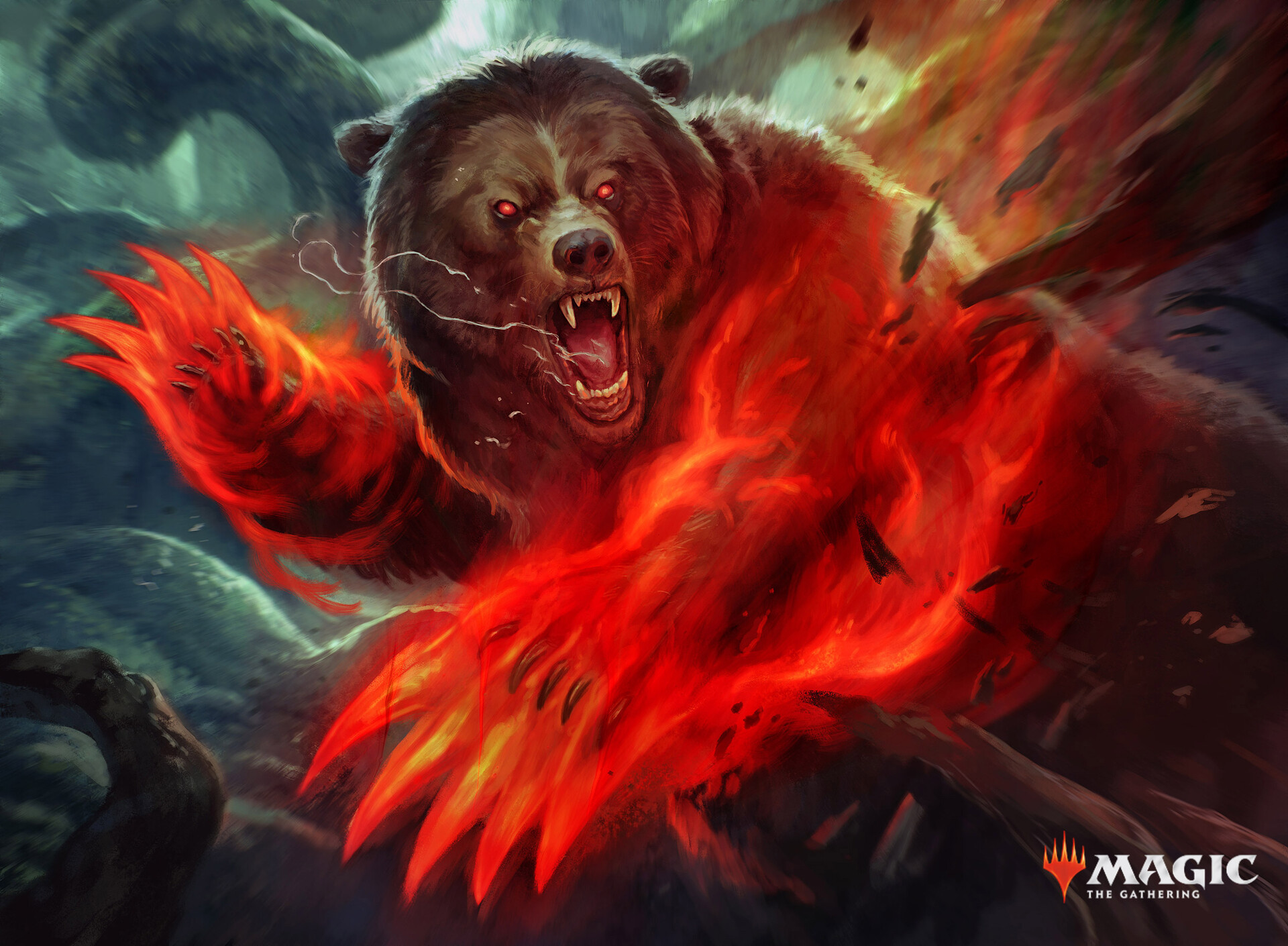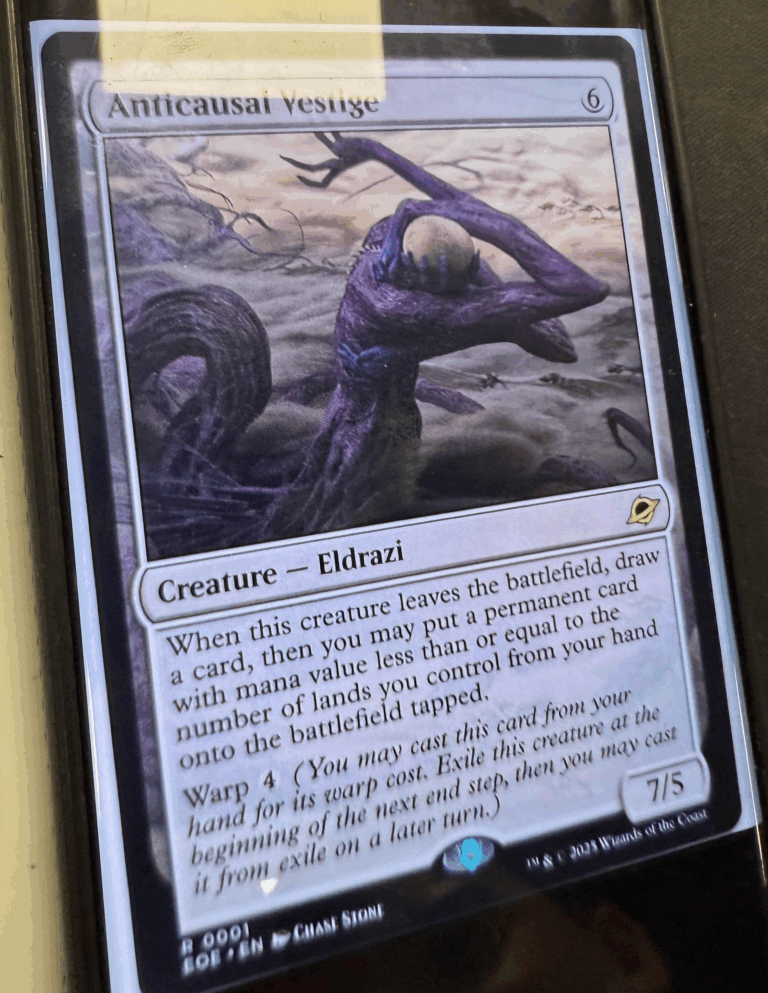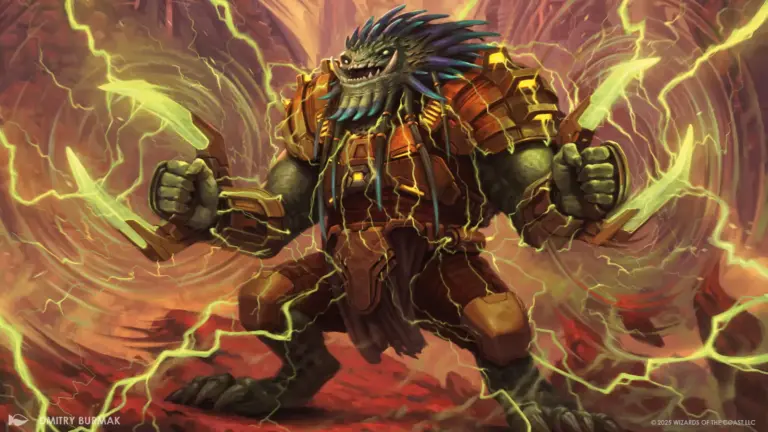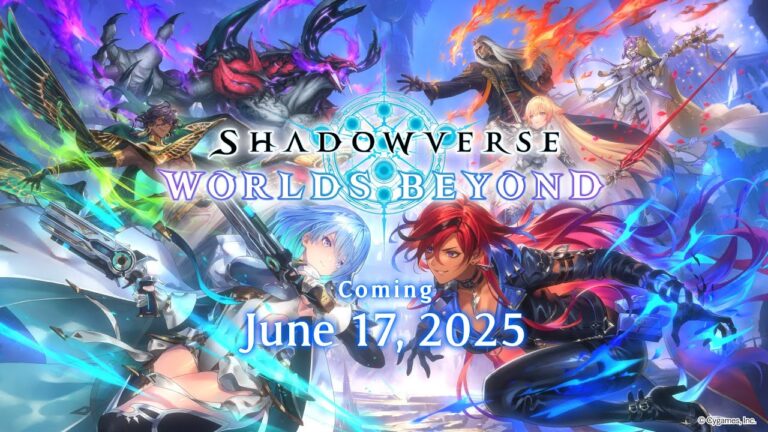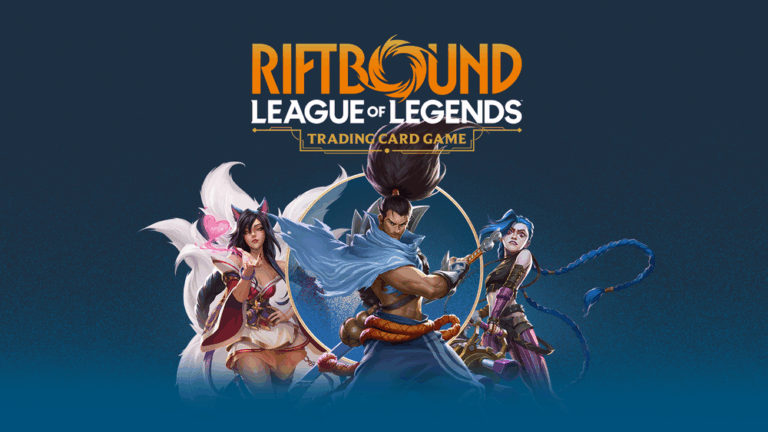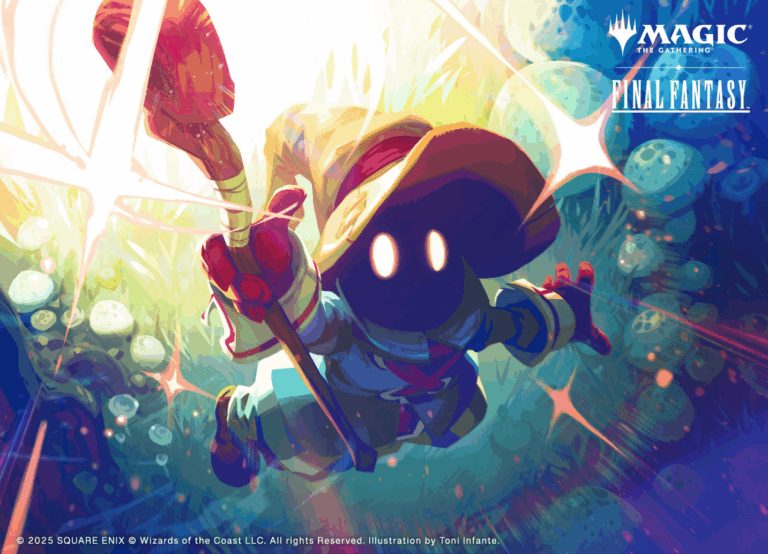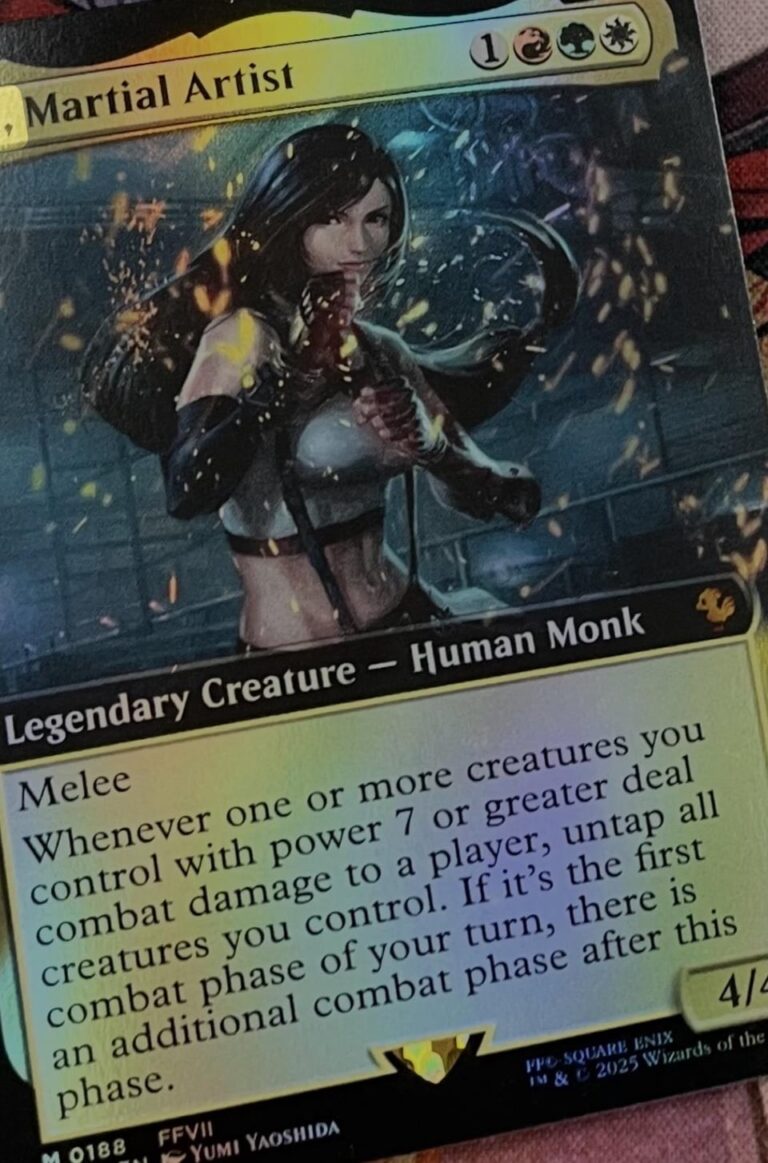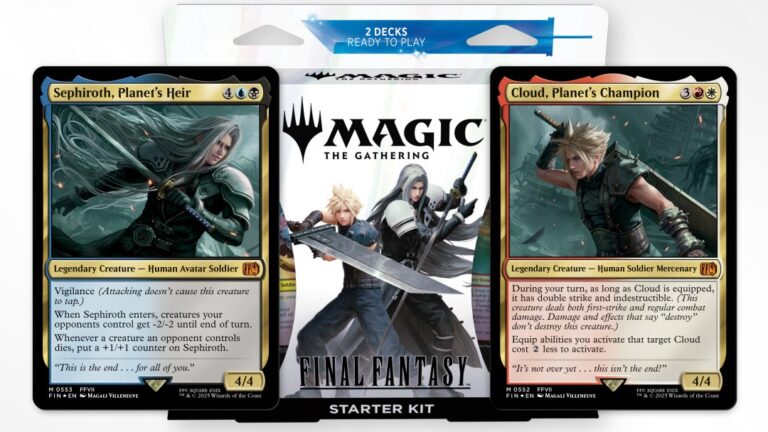Table of Contents
Wizards of the Coast has released the anticipated Banned and Restricted Announcement for June 30, 2025! Check out the full announcement below.
Standard
- tdm-103-cori-steel-cutter is banned.
- lci-1-abuelos-awakening is banned.
- woe-142-monstrous-rage is banned.
- blb-138-heartfire-hero is banned.
- woe-195-up-the-beanstalk is banned.
- woe-95-hopeless-nightmare is banned.
- otj-74-this-town-aint-big-enough is banned.
Pioneer
No changes
Modern
No changes
Legacy
No changes
Vintage
No changes
Pauper
No changes
Alchemy
- tdm-103-cori-steel-cutter is suspended (pending rebalance).
Pioneer Best-of-One on MTG Arena
- khm-153-tibalts-trickery is banned.
Historic
- dd2-24-counterspell is unbanned.
Timeless
No changes
Brawl
No changes
Effective Date: June 30, 2025
Next Announcement Date: November 24, 2025
View the list of all banned and restricted cards by format.
Howdy, gamers!
My name is Carmen Klomparens, and I'm a senior game designer on Magic's Play Design team. Welcome to our mid-year banned and restricted announcement for 2025. The previous update to the banned and restricted list focused on changes to Modern and Legacy, with massive upheaval in Pauper, but for this announcement, we're shining a spotlight on Standard. Given the quantity of cards being added to the Standard banned list, I'll go ahead and roll out the red carpet for Jadine to talk about the details of what's changing and why!
As usual, we'll be on WeeklyMTG on twitch.tv/magic tomorrow, July 1, at 10 a.m. PT to discuss these changes and answer any lingering questions. You can submit questions for that stream over on the official Magic: The Gathering Discord.
Standard
Written by Jadine Klomparens
Cori-Steel Cutter is banned.
Abuelo's Awakening is banned.
Monstrous Rage is banned.
Heartfire Hero is banned.
Up the Beanstalk is banned.
Hopeless Nightmare is banned.
This Town Ain't Big Enough is banned.
Today's announcement is our once-a-year "early rotation" window for Standard. Our goal with this window is to set the next rotation cycle up to be as fun as possible. We do this by saying an early goodbye to a number of cards that have proven their strength and made the format less fun, either by creating unhealthy play patterns or by restricting the viable deck-building options available in the environment. Below, we'll discuss these bans and our reasoning behind them. Then we'll discuss the lessons learned from these cards for three-year Standard.
We're announcing the banning of seven cards in Standard today. Seven is a lot of cards, even for our "early rotation" window, and especially so since it has been over two years since any cards at all were banned in Standard. So how did we get here?
Our last banned and restricted announcement was roughly three months ago, shortly after the release of Aetherdrift. At that time, Standard was looking fun and healthy. There were three decks clearly at the top of the metagame: red-based aggressive Mouse strategies, self-bounce synergy decks powered by Nurturing Pixie and often referred to as Pixie decks, and the Domain Overlords ramp deck, but below those top three there was a sea of other decks that stood a fighting chance on any given weekend.
The release of Tarkir: Dragonstorm in April had a dramatic effect on the Standard metagame, propelling Izzet Prowess to the top of the metagame on the wings of Cori-Steel Cutter. It was the deck to beat at the recent round of Standard Regional Championships and represented over 40% of the Standard metagame at Pro Tour Magic: The Gathering®—FINAL FANTASY™.
It's clear that the Izzet Prowess deck is having a negative effect on the Standard metagame. Its play-rate numbers are substantially higher than we have seen in Standard in the recent past. Beyond just play numbers though, the degree to which the deck is warping the rest of the metagame around it is crystal clear. One easy example is Mono-Red, which reinvented itself for an Izzet Prowess world by adopting large numbers of main-deck copies of Magebane Lizard, an excellent card against Prowess strategies that was seeing very little play before that deck's rise to prominence.
Cori-Steel Cutter is the obvious target from the Izzet Prowess deck for banning. It is, quite simply, too strong for the format, a card that's a little bit stronger than everything else. In addition to quickly rising to the top of the Standard metagame, Cori-Steel Cutter also had a large impact on Modern, a format considerably more powerful than Standard. It also has the quality of being a challenging card to interact with profitably due to the increased burden of answering artifact cards and the ease with which Cori-Steel Cutter leaves meaningful board presence behind even when quickly destroyed. This combination of sheer strength and resilience has let Cori-Steel Cutter run rampant on Standard.
At this point, it's clear the tools to challenge Cori-Steel Cutter's dominance don't exist in the environment. For these reasons, and in the interest of metagame diversity, Cori-Steel Cutter is banned.
For the sake of clarity and setting expectations going forward, the banning of Cori-Steel Cutter is the kind of action we would take in any of our banning windows. The level of dominance of Izzet Prowess in the recent Standard metagame clearly meets our threshold for bans outside this once-per-year Standard window.
The release of Cori-Steel Cutter reshaped the landscape of Standard. It's very challenging to predict what will happen to the metagame after it's banning, but we have concerns that the format may drift back to the format as it existed previously. To make sure the next Standard metagame is diverse and has room for exploration, we're banning six additional cards.
The second most popular deck at Pro Tour Magic: The Gathering—FINAL FANTASY was the Azorius Omniscience combo deck, with about a 20% share of the metagame. The Omniscience deck has existed as a part of the metagame for a while but climbed in popularity to be a major player after gaining new cards in Roiling Dragonstorm and Marang River Regent with the release of Tarkir: Dragonstorm. Abuelo's Awakening always had the potential to create a deck like this, as four mana is cheaper than we normally allow noncreature reanimation effects to be, but we had hoped that turning what it brings back into a creature would allow ample counterplay. That has not proven to be the case for Omniscience. Combo decks like Azorius Omniscience are something we want to exist in Standard, but when too strong, they warp the format around them and reduce the number of viable decks. This version of Omniscience has proved too powerful and consistent. For these reasons, Abuelo's Awakening is banned.
Monstrous Rage has been powering red aggressive decks in Standard since its release in Wilds of Eldraine. It is one of the strongest and most efficient combat tricks to have ever been printed. We've enjoyed having a combat trick be a strong Standard card, but it's clear that Monstrous Rage has overstayed its welcome. It has enabled combo-style aggro decks more than we would like and has played a large role in lowering the fundamental turn in Standard and putting players under too much pressure too quickly. In addition, the fact that it grants trample has decreased the utility of blocking in the format and greatly eroded the efficacy of defensive creatures as a counterstrategy to aggressive decks. For these reasons, and in the interest of eliminating the least fun aggressive play patterns in Standard, Monstrous Rage is banned.
Heartfire Hero has been another key piece of red aggressive decks' strength throughout the last year of Standard. The curve of Heartfire Hero into Manifold Mouse puts the opponent under pressure immediately and forces decks to have ample interaction for the early turns. Additionally, Heartfire Hero's dies trigger gives the red decks significant resiliency to many kinds of removal. Its strength has shifted the format toward decks that can interact starting on turn one or two or decks that can leverage Temporary Lockdown as powerful counterplay. We want red aggressive strategies to be a viable option in Standard, but Heartfire Hero has proven to have too much explosive power combined with too much resiliency. As such, Heartfire Hero is banned.
We discussed banning only Heartfire Hero or Monstrous Rage but ultimately decided that banning both was the correct course of action. The two cards are both independently strong, and leaving either alone would make it likely that aggressive decks in the format would still be combo-style aggro decks with consistent explosive starts and a lot of burst-damage potential. By banning both, we shift the aggressive strategies of the format away from combo-style aggro, decrease the interactional burden on the non-aggressive decks in the format, and thus increase the number of viable cards and decks.
Up the Beanstalk is no stranger to the ban list, having been banned in Modern since 2023. At this point, Up the Beanstalk has been clearly cemented as a best-in-class source of card advantage for slower decks. It shares Cori-Steel Cutter's quality of being challenging to interact with profitably, as its controller will almost always be up a full card on the exchange. This means decks powered by Up the Beanstalk are hard for many types of strategies to adapt to, which effectively eliminates them from the metagame when Up the Beanstalk decks are prevalent. The deck-building puzzle of Up the Beanstalk has also been solved so many times at this point that we expect it to be more monotonous than engaging as more cost-reduction cards may get released in future sets. We've even felt some of these pains while developing cards and mechanics that have yet to be released. For these reasons, Up the Beanstalk is banned.
The self-bounce decks have shifted a lot as the format has progressed, with just a small powerful core constant between iterations. Hopeless Nightmare is a key piece of that core, serving the role of a one-mana trinket that is powerful to cast many times in a game. The pattern of constant discard it forces on the opponent is among the least-fun elements of the deck and shrinks the game in a way that makes it hard to come back from once the self-bounce deck gets going. In addition, Hopeless Nightmare provides the self-bounce decks with both interaction and damage, allowing the deck to position itself as a disruptive aggressive deck. In the interest of removing the least-fun elements of the self-bounce decks, Hopeless Nightmare is banned.
This Town Ain't Big Enough has seen play in many different Standard decks. It almost always sees play alongside Stormchaser's Talent, a two-card package that has proven itself in a variety of shells. Most recently this package played a role in the Izzet Prowess deck, but before that, it was a key player in versions of the self-bounce synergy decks that incorporated blue. When commonplace, This Town Ain't Big Enough makes the format less fun through its unique ability to interact with any permanent-based strategy while still advancing its wielder's gameplan. While not a huge share of its overall power, the loop with Stormchaser's Talent is particularly frustrating and adds the threat of an end-game lockout to many matchups, making games less fun. For these reasons, This Town Ain't Big Enough is banned.
It's been a little over two years since we announced the shift to three-year Standard. With every set we release, we learn more about how to adapt our design heuristics to this new model for Standard. This set of bans is emblematic of two key learnings we'll be carrying forward into the future.
First, with the larger card pool of three-year Standard, we need to be more precise with our one-mana cards and our cards that synergize with one-mana cards. Three of the cards banned today cost one mana, and Cori-Steel Cutter asks to be played alongside the cheapest cards available. The potential for one-mana cards to define a format grows as the card pool increases, and we've learned that going to three-year Standard is a larger step in that direction than we had first believed. Standard is more fun when the stars of games often cost more than one or even two mana, and we will be taking steps to ensure that is true more often going forward.
Second, we need to scrutinize and be careful with the rate of cards that are challenging to interact with favorably. With the increased power level of decks in the larger format that is three-year Standard, decks are very capable of turning a small advantage into a snowball that ends the game. Strong cards that leave resources behind when dealt with, like Cori-Steel Cutter and Up the Beanstalk, reliably create that first small advantage. Identifying these cards and evaluating their strength in the context of their interactional requirements is a task that Play Design is incorporating into our process going forward.
One last announcement for Standard today: considering our next Standard rotation won't be until early 2027, we will be having two of our "early rotation" Standard banning windows before the next Standard rotation. You can expect one of these windows in about eighteen months, right before rotation as usual. The other one will be in roughly nine months around the midway point, but we haven't decided on an exact date yet and it could move around by a month or two. We will clearly indicate which announcements will specifically take a deeper look at Standard.
Pioneer
Written by Arya Karamchandani
No changes
We remain happy with the state of Pioneer since our last announcement; the format looks healthy and diverse. Newer cards continue to make a splash in the format, with the addition of Cori-Steel Cutter to Izzet Phoenix lists being the largest change, accompanied by smaller changes like the adoption of Terra, Magical Adept in Enigmatic Incarnation lists. None of these changes have led to any decks having problematic win or play rates, so currently we have no changes to Pioneer.
Modern
Written by Carmen Klomparens
No changes
While we previously announced that there would be no changes to Modern during this announcement window due to the ongoing Modern RCQ season, we did want to check in on how we're viewing the current state of the format.
The last six months of Modern have seen a massive shake-up with several cards moving on and off the ban list in December followed by the banning of Underworld Breach just a few months ago. In the time since, it wasn't clear how things were going to shake out, other than players believing that Boros Energy was going to be the top dog.
In some respects, that was true and has remained true for the last few months. Players that assembled the deck to play in the current RCQ season have had a pretty good time with it, as the deck has remained the most-played archetype for the last few months. That being said, its win rate and share of the metagame have been steadily coming down over time. Cori-Steel Cutter from Tarkir: Dragonstorm and Ketramose, the New Dawn from Aetherdrift have both supplanted existing decks in Modern, letting them flourish in the face of Guide of Souls and its ilk. Ketramose in particular has led to further exploration of the previously two-color Orzhov Blink deck, now splashing blue for Psychic Frog and some sideboard tools.
On top of new cards giving players new tools for existing archetypes, we're also seeing players explore and adapt to the current environment. Gruul Broodscale is a newer deck championed by Hunter Ovington at the recent Magic Spotlight: Secret Lair in Indianapolis, who hoisted the trophy on Sunday and won the opportunity to collaborate with the Secret Lair team on an upcoming drop.
With new cards showing up, new decks being built, and the most popular deck archetype occupying less than 20% of the total metagame, it looks like a great time to be playing Modern.
Legacy
Written by Carmen Klomparens
No changes
It's been a few months since we last took action in Legacy. Back in March, the only real way to engage with the Legacy format was by playing a form of combo, prison, or Eldrazi. At the time, our intent was explicitly to remove the negative play patterns of Sowing Mycospawn and take Dimir Reanimator down a peg. Thus far, the results have been mixed to positive. Since the banning of Sowing Mycospawn, Eldrazi decks have more or less vanished from the metagame, with Mystic Forge artifact combo taking its place as the most popular colorless deck. Dimir Reanimator, on the other hand, has remained the most played deck in the format, albeit at a lower win rate and smaller share of the metagame. In a lot of ways, this is the process working as intended.
Ultimately, Eternal formats are a place where people want to feel like they can put a bunch of time into collecting all of the cards for a deck and know that it will be viable for a long time. Given that the most recent Legacy Showcase on Magic Online had an extremely diverse Top 8, with the lone copy of Dimir Reanimator going out in the quarterfinals, it feels like Legacy players have directions to go if they want to be successful without playing Daze and Entomb together. It is hard for us to disentangle if the reason that Dimir is showing up at a high rate is because it is the best deck or if Legacy is delivering on its promise of allowing players to play with the same cards year over year.
One divisive topic in Legacy is the existence of the Oops! All Spells deck.
Oops! All Spells is a deck that exists on the back of technicalities and technically complex rules interactions. The deck gets its name by not playing any cards that are lands on their front side, then maximizing what it can get out of that restriction. In its initial configuration, it uses Balustrade Spy or Undercity Informer to mill its entire deck, recur some creatures like Narcomoeba and Poxwalkers, and use those creatures to fuel the flashback cost of Dread Return, targeting Thassa's Oracle to win immediately. After sideboarding, the deck can dodge graveyard hate by using Goblin Charbelcher to reveal 40 or 50 cards and kill the opponent in one giant shot. As the deck has evolved over time, cards like Jack-o'-Lantern and Memory's Journey have helped the deck become more resilient to interaction.
To some, this deck can be particularly frustrating to lose to as it feels like it's abusing Magic's game engine more than it is playing a game of Magic. To other people, it's an illustration of why Magic's game engine is cool. The deck is doing a bunch of things that "shouldn't" be allowed and rewards having a deep knowledge of the rules and cards in Magic. It puts us in a difficult position of trying to arbitrate whether we think it has a positive or negative impact on the environment.
Unlike other archetypes, so much of why this deck exists is because of one-of-a-kind cards that run the risk of killing the deck completely if we were to address the archetype. For now, the deck is showing up at a range that is acceptable for decks in the format and has a win rate that is within permissible ranges, which has us reluctant to make a change. Given the strong negative reaction some players have to playing against this deck and how hard it can be to adapt to, the bar it has to clear for us to take action against it is lower than some other decks, but for now, we're happy to let such a unique deck have a place to exist within Magic.
Vintage
Written by Carmen Klomparens
No changes
During our last update to the banned and restricted list, we had a serious discussion around the possible banning of Lurrus of the Dream-Den for power level reasons. With Paradoxical Outcome-fueled artifact decks being the most popular way to play with the Cat Nightmare, the rest of the format has begun targeting that archetype more pointedly to reasonable success. Mono-White Initiative with Clarion Conqueror has had its fair share of winning in the last few months, and Mishra's Workshop decks have pivoted toward including copies of Sphere of Resistance to slow down any deck trying to flood the board with cheap permanents.
For now, it feels like Vintage players are exploring ways to exploit the deck-building restrictions Lurrus places on its owner and the incentives she forces in deck building. Not to mention, there's an extremely powerful three-mana permanent coming with Edge of Eternities that we previewed at MagicCon: Las Vegas.
Pauper
Written by Gavin Verhey
No changes
We on the Pauper Format Panel (PFP) have been closely monitoring the format since the last series of changes. We generally feel the bans have impacted the format in positive ways, and we're happy with the impact that removing Deadly Dispute has had on the prevalence of that engine in the format. The overall health of the format looks great with a lot of viable archetypes. The trial unbanning of Prophetic Prism has gone well, and we feel comfortable leaving that be. You can consider the Prism to be no longer trial unbanned.
High Tide, on the other hand, has been a lot more contentious. This is an interesting situation. Looking at the Magic Online data, the win rate (how often the deck wins matches) of High Tide hasn't been anything noteworthy, sitting at just about 50% (for reference, the current top archetype by win rate among the several most played decks is Faeries, sitting at just below 55%), with some matchups that are some of the lowest win rates I've ever seen for an archetype in any format. For example, it carries a 10% match win percentage against the aforementioned Faeries deck and a sub-30% win rate against the Rakdos Burn decks. Winning only half of its matches against multiple decks in the format it is exceedingly unfavored against normally would never be a cause for banning again.
However, the play patterns of High Tide take a large amount of time to resolve and are cause for concern. We've heard this from many members of the community. It is unfun to sit there while they combo off and causes in-person events to run long as one player continues to combo. This is reminiscent of problems that other formats have had. For example, Second Sunrise and Krark-Clan Ironworks combos in Modern had a similar issue.
This is certainly not the only deck in Pauper that has non-deterministic combo turns that can take a while—for example, Cycle Storm. Historically, the play rate (how much of the metagame share a deck has) of those decks has been low enough that it hasn't been an issue. For reference, noting that the play rate is much smaller so the data has a smaller sample size, Cycle Storm has a higher win rate than High Tide at about 51%! In the case of High Tide, however, the play rates are high enough to cause this time-based problem—though it's hard to tell how much of the problem is just because it's the exciting new thing.
The format and opinions around High Tide are still evolving, and we want to give it some more time to let that happen and be sure. If we reban High Tide now, it is banned for good—so we'd rather take a little more time now to observe and be sure. Additionally, a large in-person Italian tournament, Paupergeddon, is coming up on July 4. We don't love making a change this close to the event and would like to look at the results of its performance to help determine what to do with High Tide. We have seen Paupergeddon dramatically impact deck popularity in the past, so the success or failure of High Tide there may do a lot to impact its position in the format.
So, we are extending the trial unbanning of High Tide.
To that end, you might note that elsewhere in this article the next ban and restricted announcement window is scheduled for November 24. We on the PFP don't believe it's appropriate in this specific case to wait that long to tell all of you about the fate of High Tide. We need some more time to collect data and observe, but not until November. If we do think it's a problem, we want to step in and remove it sooner. We also don't want to make a change that close to Eternal Weekend in Europe, where there will be a lot of Pauper being played.
So, we are expecting to come back and deliver a verdict within the next few months, likely August. If we do come back and deliver a ban at that time, that will be a Pauper only ban window. Either way, we'll come back with a longer format check-in at that time. We don't currently see Pauper as needing any other bans or unbans.
Thanks to all of you for playing the format and sending feedback our way, and we'll continue to keep an eye on Pauper—and especially High Tide—in the weeks to come.
Each of the following MTG Arena-only formats will be covered by Dave Finseth.
Alchemy
Cori-Steel Cutter is suspended.
Since its release with Tarkir: Dragonstorm, Cori-Steel Cutter has overperformed in Izzet Alchemy decks. Generating a lot of value on board and giving creatures trample has proven to be a winning combination for this cheap artifact. We plan to rebalance this card, but we need more time to implement the adjustment. In the meantime, Cori-Steel Cutter is suspended in Alchemy to open the field for new strategies. Players can expect a rebalanced version in a future MTG Arena update and the card to come off the suspended list.
Our last round of rebalances in May has corrected the metagame exactly as we hoped. Naktamun Shines Again still sees play but is no longer being included in every deck with access to white mana. Chorus heist decks are not the dominating force they once were but are still viable since the increased mana cost of Ribald Shanty.
Since our last update, we have also seen the addition of Alchemy: Tarkir. We are reasonably happy with how those cards have shifted the competitive metagame and expanded on core packages seen in Standard. In particular, the mobilize token decks got an extra boost with Thunderbond Vanguard and Waystone's Guidance, allowing the Mardu deck more space to shine/
Best-of-One Pioneer on MTG Arena
Tibalt's Trickery is banned.
In our Best-of-One formats, Tibalt's Trickery has regularly caused problems in a deck that aims to mulligan aggressively, play the card on turn two to counter their own spell, then put something huge and nasty into play. It's banned in Historic and is one of the three cards restricted in Timeless. It was banned in Explorer, but when we renamed the format to Pioneer, we matched the existing ban list.
Since its unbanning on MTG Arena in Pioneer, Tibalt's Trickery went right back to causing trouble. While the win rate numbers aren't terrible, it's a card that results in one-sided games with little interaction between players. Two-thirds of games with this deck end by turn three and see significantly more mulligans than other decks. Due to these factors, we are banning Tibalt's Trickery in Best-of-One Pioneer, as it is overall less fun on MTG Arena.
This is a uniquely Best-of-One problem. In Best-of-Three formats, the players have more sideboard options at their disposal to respond to this unique game plan.
Historic
Counterspell is unbanned.
Historic has had a noticeable shift in power level over the last few years since the release of Modern Horizons 3 and powerful additions from bonus sheets. Our vision for Historic is a deck builder's paradise where any favorite deck can be viable for play. We have been curating the format carefully to make sure no single strategy overwhelms the format. For example, we successfully slowed down the white-red energy package so it fits in with where we want Historic's power level to be. We limit free spells and land destruction so that players have time and resources to play their cards.
For some time now, we have noticed that creature combo and enchantment strategies have been consistent and dominant in the format. We want to give control players a few more tools to react and disrupt the tempo of these aggro and midrange decks. While the power level of creature-based decks has grown, control has fallen a bit behind. Therefore, we believe it's time for Counterspell to be unbanned in Historic. This classic control staple is well positioned to keep the format fair and balanced across archetypes by slowing down creatures filling up the battlefield. As with any change, we will continue to monitor the format to ensure it is producing the results we are expecting and see if any further changes might be beneficial.
Timeless
No changes
The Timeless metagame has continued to hold the best decks in check with slight shifts in the top decks. Since the emergence of Goblin Charbelcher combo, other decks have included more hand disruption and counter spells in their main decks to delay an early game win. Mardu Energy, Shift and Tell, and Psychic Frog Tempo decks all make up some of the most powerful games of Magic you can play anywhere.
Timeless is designed to be a stable format, so we expect changes from banned and restricted updates to be rare. We do expect Timeless to continue to evolve this year through additional reprint cards coming to MTG Arena in Anthology releases and Special Guests cards.
Brawl
No changes
The popularity of Brawl continues to grow with the addition of over 100 new commanders with the release of Magic: The Gathering—FINAL FANTASY. This update included the partner mechanic for the first time on MTG Arena. We have accounted for partner in our matchmaking system and will continue to adjust the individual placement of commanders as they prove themselves.

